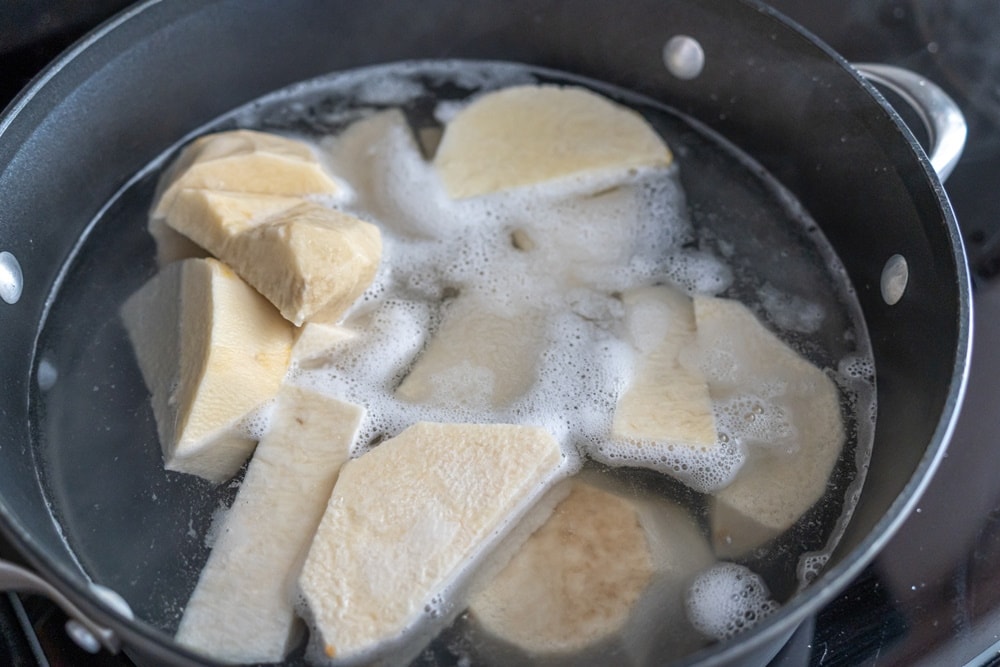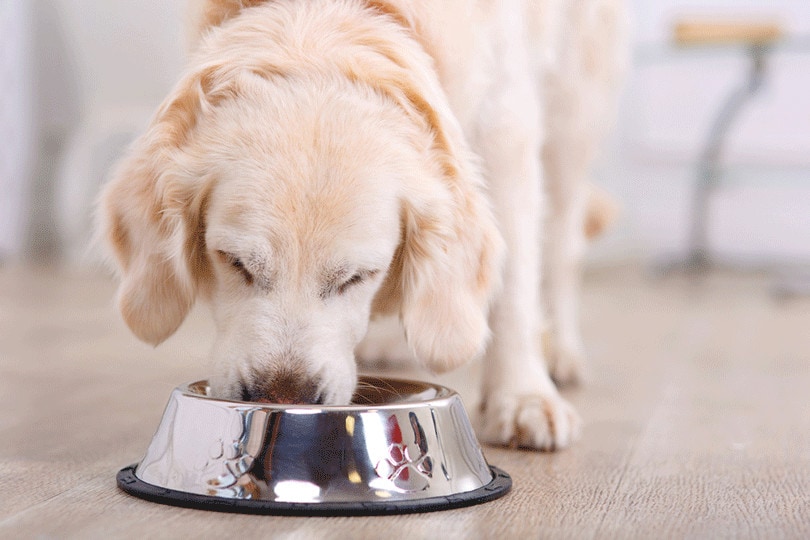
Click to Skip Ahead
Most dogs are voraciously curious and glad to eat anything you put in front of them, while others are more discerning and pickier. Choosing a diet can be challenging for picky eaters, leading you to seek out some lesser-known foods for your dog to try. For instance, can dogs eat yams? Yes, dogs can eat yams if prepared correctly, and they’re even packed with both flavor and beneficial nutrients!
Before you load up your dog’s bowl with yams, it’s important that you fully cook them first. There are a few methods of doing that. Let’s dig into how to prepare those yams for your dog, the benefits of yams, and more handy dietary tips for including yams in a healthy canine diet.
Are Yams the Same as Sweet Potatoes?
No, yams aren’t the same as sweet potatoes, but dogs can enjoy both of them just fine if they’re cooked. Yams aren’t as sweet as sweet potatoes and have a rougher, scalier brown skin versus the lighter, smoother sweet potato. Both are tubers that grow underground. Try growing some yourself if you happen to have a green thumb and the yard space. With some patience and a big enough garden, you can have veggies for you and your pup all year round!
It’s important to know what the visual difference is between yams and sweet potatoes because many grocery stores stock yams that are actually a variety of sweet potato. The difference isn’t that big of a deal, but it’s best to be cautious when selecting your dog’s food.

Health Benefits of Yams for Dogs
Yams are a rich source of dietary fiber, vitamin A, potassium, manganese, and more. They’re also low in fat and fairly low in sugar, making them great for overweight dogs or voracious eaters. They shouldn’t make up a large part of the diet, but a small portion of cooked yams regularly can promote good digestion and confer other health benefits too. Let’s wade a little deeper into some of the precise health benefits that yams have to offer your dog within a balanced diet.
Do Yams Pose Any Health Risks to My Dog?
Sort of, but only when raw. Raw yams are hard to digest and contain substances that are toxic to dogs such as tannins. Always cook yams before offering them to your pup.
As with any veggie, yams are best used as a side or treat along with a complete, balanced dry food. They’re not strictly necessary at all in your dog’s diet, and you should stop serving them if you notice any adverse signs. Check with your vet before adding them to your dog’s diet, especially if they have any underlying health concerns or special dietary requirements.

Are Canned Yams Safe for My Dog?
Like most canned foods, canned yams aren’t formulated with dogs’ dietary needs in mind. They typically contain added sugar that’s not good for dogs, and extraneous preservatives or added ingredients could be harmful to your dog too. While the convenience of precooked canned yams is tempting, it’s best not to chance it with your dog’s health potentially at risk.
Tips for Serving Your Dog Yams
While dogs will chow down on fresh food without considering how it was cooked, it’s up to you as their pet parent to prepare it in the healthiest way possible. Digestive systems vary from sensitive eaters to steel-stomached dogs akin to goats that eat everything, and only you know your dog’s tolerance for new foods. Let’s check out how to best prepare yams for your pooch below.

What Other Veggies Can My Dog Enjoy?
Yams are far from the only veggie that your dog can munch on at mealtime with their kibble, and most dogs enjoy some variety in their diet. Let’s skim over some possible choices to introduce to your dog along with yams.

Conclusion
Cooked yams are a delicious and nutritious way to introduce veggies to your dog’s diet, offering valuable dietary fiber and an array of vitamins and trace minerals. They’re great for keeping your dog full for longer, but avoid feeding a large amount of them or serving them raw.
Featured Image Credit: HUIZENG, Shutterstock






